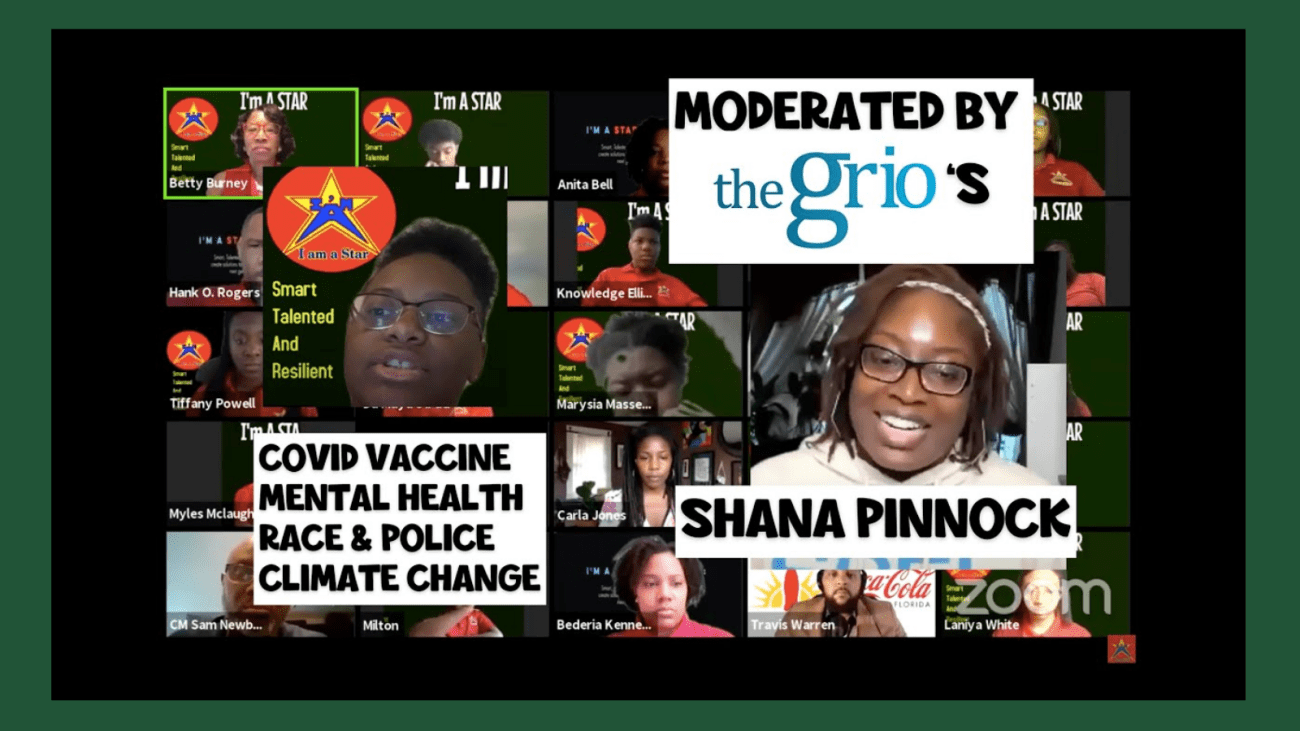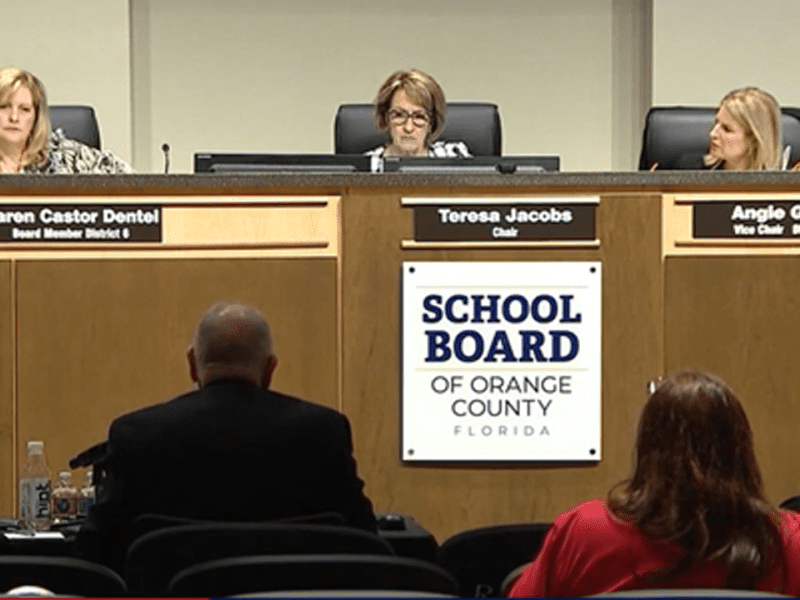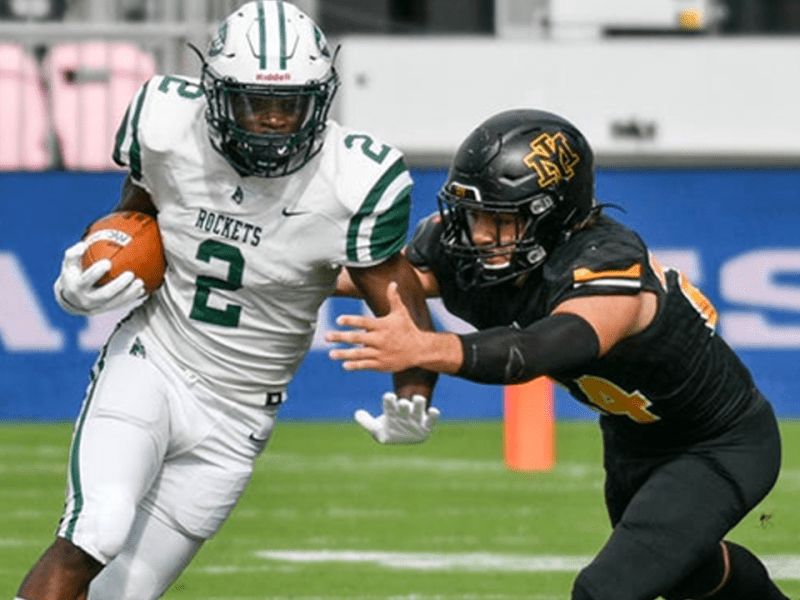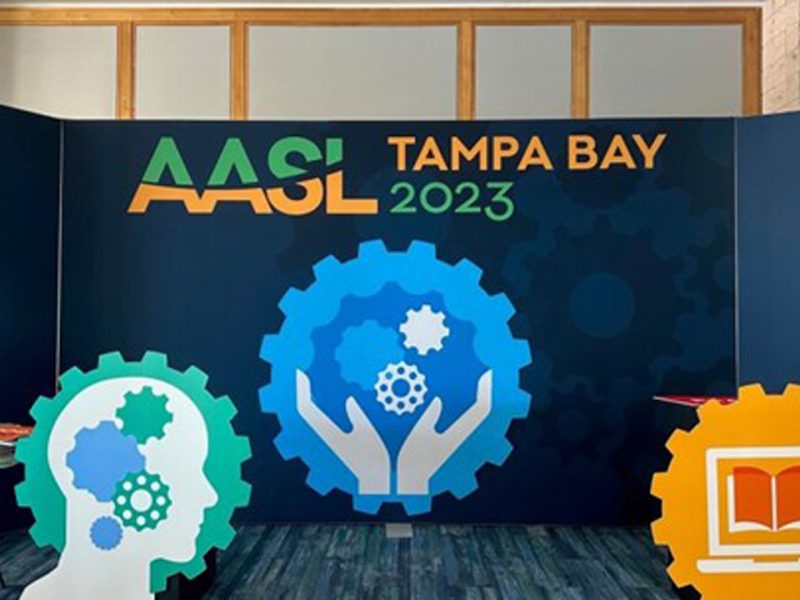Jacksonville teenage leaders speak out, offer solutions to city’s biggest problems
Florida Times-Union | by Teresa Stepzinski | December 13, 2020
A group of Jacksonville teenagers spoke out Saturday — offering potential solutions to some of the city’s toughest challenges: racial inequity and policing, the COVID-19 vaccine, mental health/mindfulness and climate changes.
The members of I’m a Star Foundation, a nonprofit Jacksonville-based leadership program for middle and high school students discussed their ideas with local, state and national leaders during a “Leader to Leader” virtual summit.
The volunteer I’m a Star Foundation’s goal is to transform students into the next generation of servant leaders.
STAR is an acronym for “Smart, Talented and Resilient” students. The foundation draws kids ages 12-to-18 from schools across Duval County. The students meet on weekends to creatively work cooperatively on solutions to problems affecting their peers.
Milton Person, 16, led two spirited but positive sessions. The students’ proposed solutions included better bias and sensitivity training for law enforcement officers.
“One thing I want to add from my second group … was diversity in the police department. They want to have different faces in the police department,” Person said.
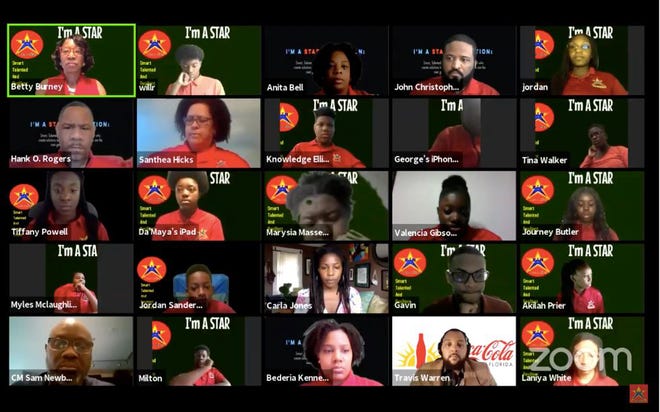
Jacksonville teenagers and leaders of the nonprofit I am a Star Foundation met with local, state and federal influencers Saturday in a virtual policy summit discussing potential solutions to the city’s biggest challenges such as racial inequity and policy, COVID-19 and climate changes. I am a Star Foundation/Provided
The teenagers also called for better community policing. Officers should live in the neighborhoods that they patrol so they can better get to know residents.
“Also they want police officers to go introduce themselves to those people in the community that they are patrolling. In addition, they want a budget change as in taking a percentage of money that the police get from all these different city and state [funds]. They want to take some of that money and put it to better training, and other important issues,” Person said.
Such measures, they said could go a long way to convince people who see a crime or have information about one come forward and break the no-snitch code of silence and tell police.
Students Tina Walker and Javar Collier said it’s a matter of respect.
“Everybody should be treated with the same respect because if you disrespect somebody then they’re going to disrespect you. You should treat others how you want them to treat you,” Collier said.
Another questioned why police needed more training, saying they already have training to de-escalate volatile situations, but that it’s not working.
Concerns about the COVID-19 vaccine also was on the minds of the students.
A poll of the 68 participants at the beginning of the summit revealed that 56 percent would not take the vaccine, while 46 percent said they would do it.
“If I had more information about the vaccine I’d consider taking it,” said Valencia Gibson, 15.
She and other students questioned the safety of the vaccine because it was developed so quickly and is being distributed without the typical five-year trial period.
Another girl said she would take the vaccine because it would help her stay healthy and help protect the community by not spreading the virus.
Journey Butler, 17, who led the climate change session said the students agreed that manufacturers should receive incentives to produce and use sustainable and biodegradable materials.
A sense of urgency needs to be emphasized to the public to take climate seriously, she said.
U.S. House Majority Whip James E. Clyburn of South Carolina via video offered the students some heartfelt advice after noting they are training to become leaders.
“Leadership is as leadership does. As my dad used to tell me, you must lead by precept and example,” Clyburn said. “No matter what you may profess as leadership. It is what you practice is what you do. It’s a little bit difficult. It’s not their words but their deeds that really matter.”
NFL Hall of Fame member Brian Dawkins urged the students to erase the negative stigma around mental health. Dawkins, considered one of the greatest Philadelphia Eagles players of all time, encouraged the youth to talk about their feelings to a counselor or to someone they trust.
“It’s ok, not to be ok. It’s fine but we don’t want that to continue to be the case so that’s why we want you to talk to somebody. It’s ok to seek help,” he said.
Policymakers participating in the summit included Jacksonville City Council members Terrance Freeman, Joyce Morgan and vice president Sam Newby, Superintendent Diana Greene of Duval County Public Schools along with School Board Chairwoman Elizabeth Andersen, state Rep. Tracie Davis and a representative for U.S. Rep John Rutherford.
Since its establishment in 2010, the Star Foundation has maintained a 100% graduation rate. Betty Seabrook Burney, founder and executive director, is a former Duval County. School Board chairwoman.
STAR students have been featured in a variety of local, state and national news media outlets. The program has earned accolades from national leaders.
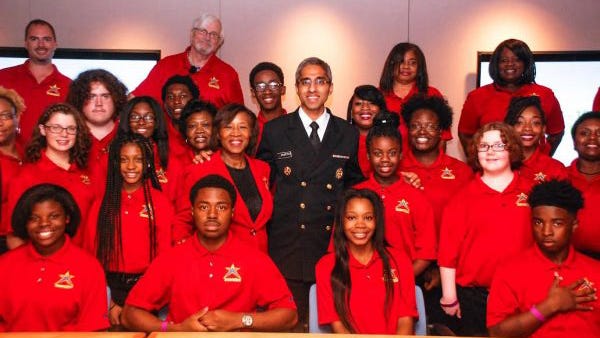
Vivek Murthy, the physician recently nominated by President-elect Joe Biden to be U. S Surgeon General is shown here in 2016 with students and leaders of I am a Star Foundation, a nonprofit Jacksonville-based leadership program for middle and high school students. Murthy, who co-chairs Biden’s Transition COVID-19 Advisory Board, has described STAR students the “next generation of leaders” after they pitched him solutions on childhood obesity. I am a Star Foundation/Provided
Vivek Murthy, a physician nominated by President-elect Joe Biden to become U.S. Surgeon General praised STAR students in 2016 when they met with him to pitch their solutions for childhood obesity.
In October, 38 STAR members debated the wisdom — or lack thereof — of the decision to send students back to school amid the COVID-19 pandemic.
Half of them researched and prepared arguments advocating a return to “brick-and-mortar” learning, the other half advocated virtual learning.



